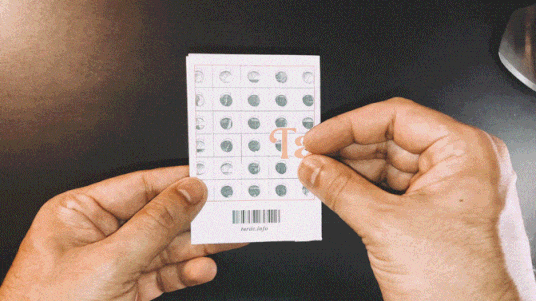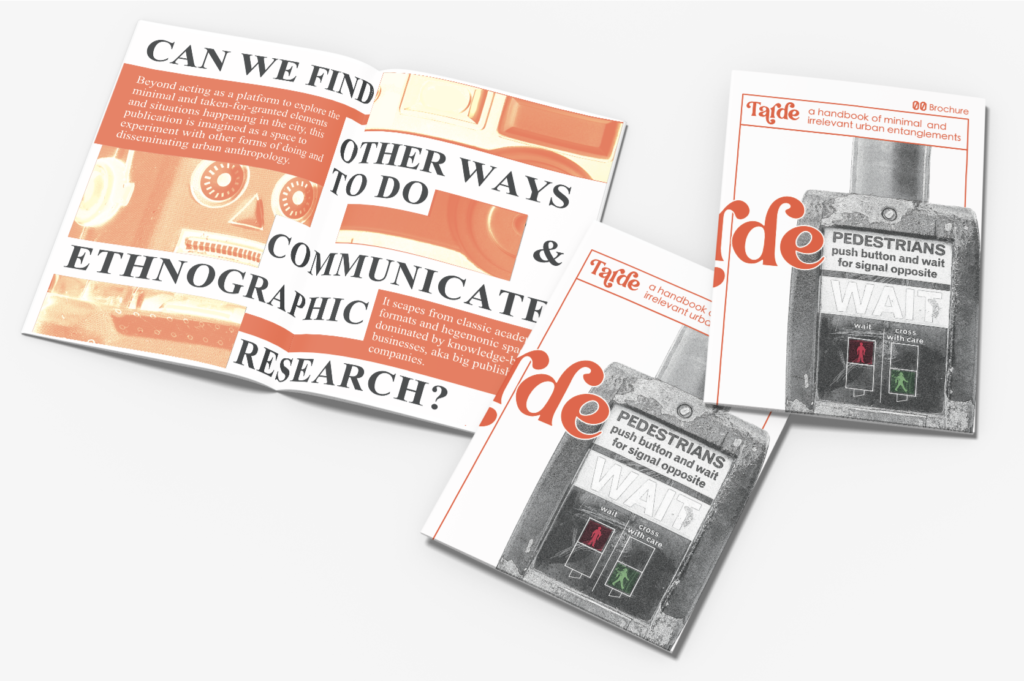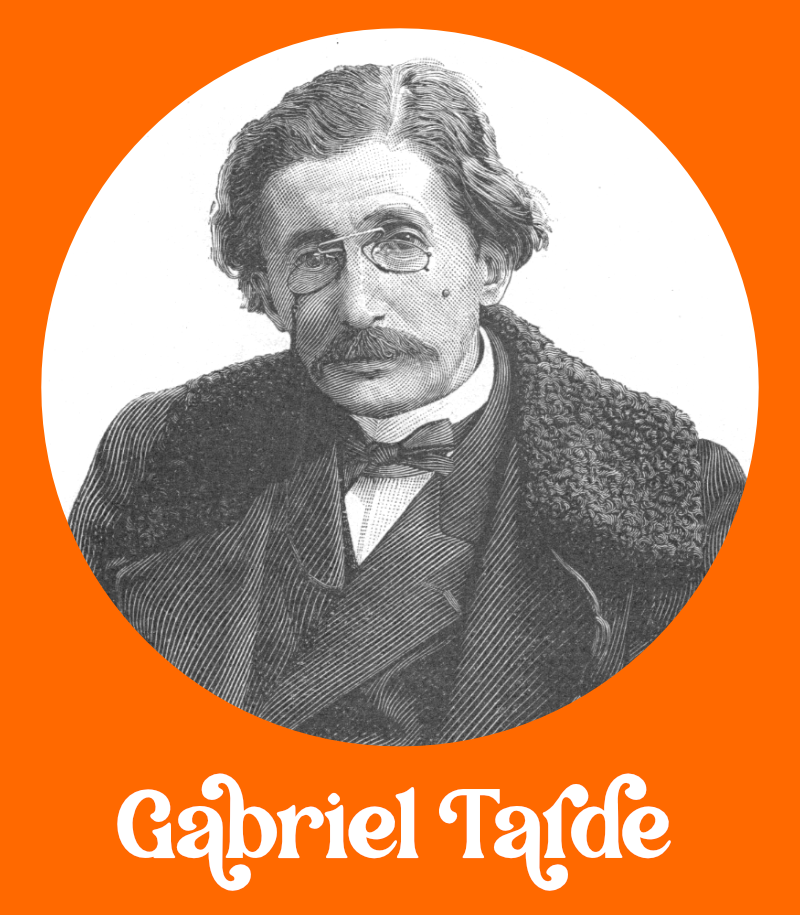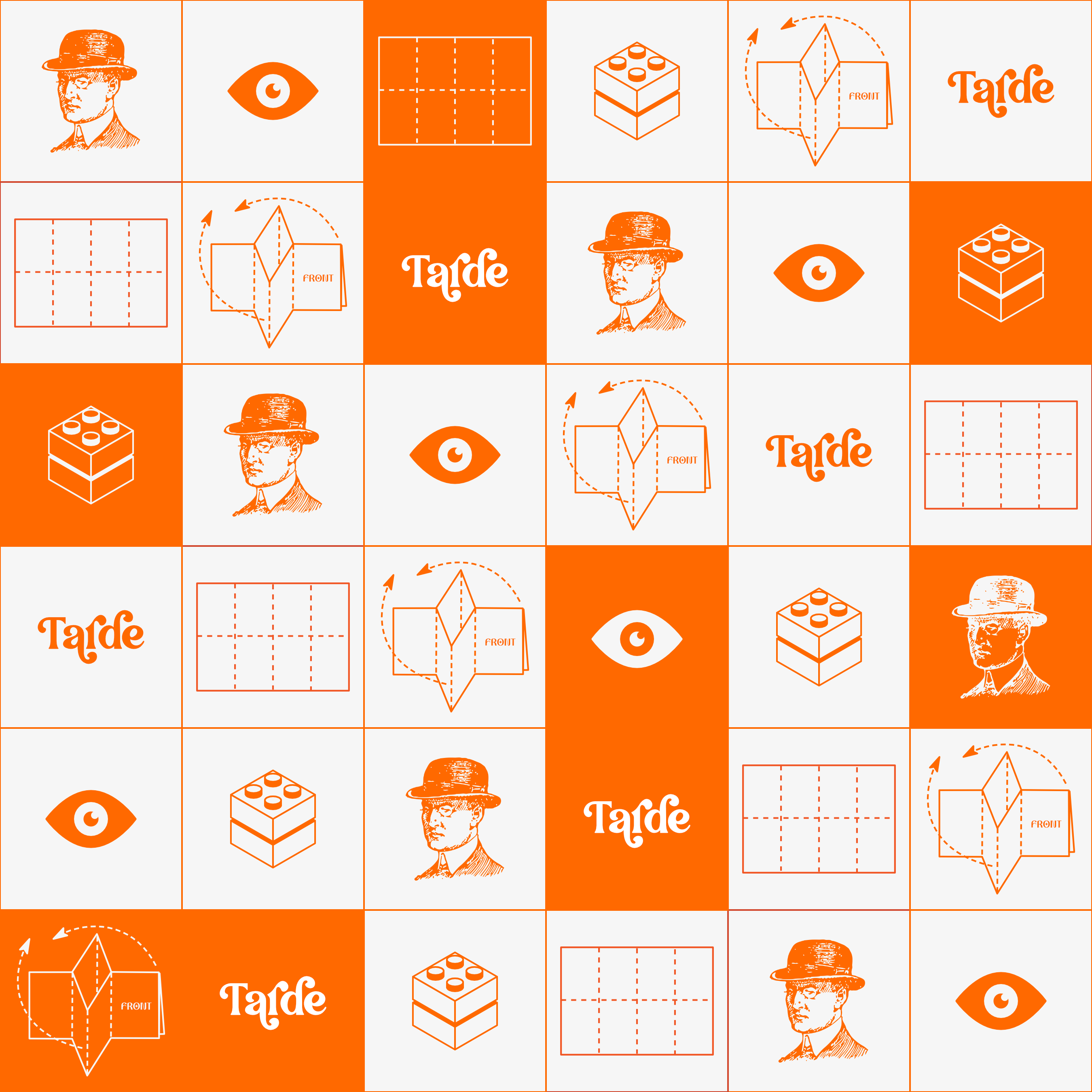Tarde, an unfinished DIY experiment
Tarde is a bimonthly experimental publication that showcases the often unnoticed associations and encounters shaping urban life. Through a broad perspective, including anthropology, design, digital journalism, and philosophy, it seeks to approach the particularities and effervescences happening in and transforming public spaces in contemporary cities.
Inspired by the DIY movement, punk fanzines, guerrilla marketing, and the self-publishing possibilities of digital media, Tarde delves into a single topic/case per edition, mixing different formats, narratives, and materials, to create ethnographic vignettes and data visualizations resulting from exploring and exhausting the world outside.

A collection of minor ethnographic stories
The idea of fabricating minor ethnographic stories mirrors what Gilles Deleuze and Felix Guattari proposed as minor literature: “a political literature of minorities”[1]. This is a type of literature characterized by three elements:
- A “deterritorialized” language that challenges formats, spaces, and conventions of mainstream [in our case, academic] language.
- A strong political connection with minoritarian groups. Here, we have those often unnoticed and ignored as constitutive elements of urban life.
- The collective and collaborative production behind this type of content also aims to include —although it is still unclear how— those minorities shaping the city this publication talks about.

Can we find other ways to do and communicate ethnographic research?
Despite being conceived as a self-published media, all Tarde numbers are curated and discussed with guest scholars and practitioners to ensure quality content. The handbook also has a website (this site!) where its printed content is expanded. Additionally, people from all over the world have the chance to download, print and distribute each publication under a Creative Commons Attribution-NonCommercial license.
Beyond acting as a platform to explore the minimal and taken-for-granted elements and situations happening in the city, this publication is imagined as a space to experiment with other forms of doing and disseminating urban anthropology. It scapes from classic academic formats and hegemonic spaces dominated by knowledge-based businesses, aka big publishing companies.
By doing that, Tarde proposes an open access, collaborative, and inventive hybrid artifact, with physical and online presence, a collectible document easy to produce and distribute, and enjoyable to use. Whether you’re an academic, a student, or simply curious about urban life, this publication will surely inspire and inform.
Ethnography as an inventive machine

Expanding Andrea Ballestero and Brit Ross Winthereik’s focus on the imaginative being of analytic practices in ethnography, Tarde links crafting and designing methods “as a form of [ethnographic] knowledge production [and as a] creative and organized process of generating insights” [2] in urban research.
Moreover, this project aims to work as an entangled, experimental, and interdisciplinary hub for inventive, sensory, and multimodal methodologies in both printed and online media. There are two main sources of inspiration driving that goal:
- It follows the way Sarah Pink [3] understands multisensory ethnography: as an interconnected and interrelated set of senses that go beyond individual modalities and categories, and surpass a particular discipline.
- Continuing with the line of interdisciplinarity, the handbook lies in Celia Lury and Nina Wakeford’s [4] explorations of methodological inventiveness engaging with ethnographic practice through the construction of epistemological devices and material artifacts.
Why Tarde?
Tarde is named after Gabriel Tarde (1843-1904), a French sociologist whose work on social interaction, singularity, and variation may also be considered “minor.” Tarde’s contributions were relegated from mainstream sociology due to their being defeated by Émile Durkheim’s conception of society as the stabilization of well-defined macro structures.
Particularly, the handbook takes Gabriel Tarde’s proposal to analyze the world outside by paying attention to small social interactions among individuals and stretches it to focus on those encounters and elements that are often ignored. Tarde, the sociologist, believe those small social interactions were creating open, temporal, and untestable networks that together compose long-scale assemblages. That’s how we understand the urban here.
As a final remark, Tarde’s work has strongly influenced Deleuze’s philosophy, particularly his notion of repetition and the development of the assemblage theory. Tarde has also played an important role in Bruno Latour’s idea of association as an alternative concept for society. He has been considered a precursor of Actor-Network Theory, an epistemological approach this project takes as one of its main workbenches.

References
[1] Deleuze, G. and Guattari, F. (1986). Kafka: Toward a Minor Literature. Minneapolis: University of Minnesota Press. p. 66.
[2] Ballestero, A. And Wintherrek, B. (Eds.). (2021). Experimenting with Ethnography: A Companion to Analysis. Durham: Duke University Press.
[3] Pink, S. (2009). Doing Sensory Ethnography. London: SAGE Publications.
[4] Lury, C. and Wakeford, N. (2012). Inventive Methods: The Happening of the Social. London: Routledge.

